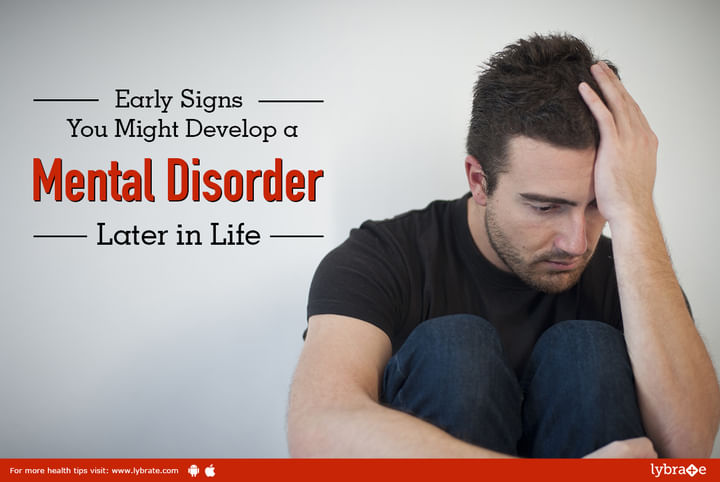Early Signs You Might Develop a Mental Disorder Later in Life
Warning Signs of Mental Illness
The mind or the brain is the master computer, the site of our consciousness, thoughts and memories. We often tend to think of our mind as a separate entity, but the mind and the body are linked and just like our body, the mind too is susceptible to illnesses. The idea of mental illness makes us feel vulnerable and helpless and we dismiss the possibility of mental illness as something that “will not happen to me” or “is in my control”. But like all other illnesses, mental disorders too, are ultimately not in our control. More importantly, they are readily treatable with medications and therapy.
Mental illness refers to a wide range of mental health conditions/disorders that affect our mood, thinking and behavior. They include depression, anxiety, schizophrenia, eating disorders, alcohol/drugs abuse and many others. All of us feel sad, anxious, stressed and have occasional sleepless nights. So when does a mental health concern become a problem? When the signs and symptoms persist and affect our regular day-to-day activities, it’s probably time to seek help.
Awareness is the first step to treatment. Learning about the signs and symptoms will allow you to seek help early and get back to a healthy and happy life.
If several of the following symptoms are recurring, it is advisable to consult a mental health professional.
1. Withdrawal: Recent social withdrawal and lack of interest in others are a common sign that you may have a problem in hand.
2. Drop in functioning: There is a sudden unusual drop in functioning at school, work or other social activities such as withdrawing from sports, failing in school or difficulty in performing ordinary tasks.
3. The problem with thinking: You face complications with concentration, memory or rational thoughts and speech that are hard to explain.
4. Increased sensitivity: There is a heightened sensitivity to sights, sounds, smells or physical contact and a tendency to avoid stimulating situations.
5. Apathy: There is a loss of desire or initiative to participate in any social activity.
6. Feeling disconnected: You experience a vague feeling of detachment from yourself or your surrounding and a sense of unreality encircles you (paranoia or hallucinations).
7. Illogical thinking: You have an exaggerated belief about your personal powers to understand meanings or influence events. You suffer from irrational or magical thinking, typical of childhood in an adult.
8. Nervousness: You have a feeling of fear, you are skeptical of others or have a strong nervous feeling.
9. Sleep or appetite changes: You experience sleep disorders, significant tiredness and appetite changes and even decline in personal care.
10. Mood swings: There are rapid or dramatic shifts in feelings ranging from excessive anger; hostility or violence to suicidal thoughts.
'Consult'.
Related Tip: Multi-Tasking Can Damage Your Brain and Career in These 3 Shocking Ways.



+1.svg)
